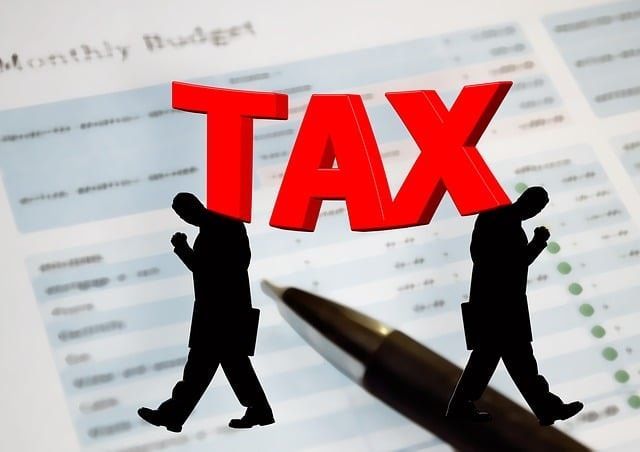CFO GROUP INTEGRATED SERVICES
Are Dividends Taxable in Singapore? The Truth Every Investor & Business Owner Must Know
CFO Group • May 13, 2025
If you're an investor or business owner earning dividend income, you may wonder: Are dividends taxable in Singapore? The answer depends on the types of dividends you receive, the source of the income, and your tax residency. Singapore’s tax system is unique, and in many cases, generous to shareholders.
This article provides a full breakdown of the taxation of dividends in Singapore. Whether you’re an individual or a company, this guide will help you understand how dividends are treated under the one-tier corporate tax system in Singapore.
Dividend Taxation Under Singapore’s One-Tier Corporate Tax System
Singapore operates under the one-tier corporate tax system, which means:
- Corporate profits are taxed at the company level, currently at a tax rate of 17%.
- Once dividends are distributed from after-tax profits of the company, they are exempt from tax in the hands of shareholders.
This results in non-taxable dividends in most circumstances. This system simplifies dividend tax obligations and avoids double taxation.
Are Dividends Taxable for Individual Shareholders in Singapore?
In most cases, no dividends are taxable in Singapore for individual shareholders. This applies to:
- Dividends from Singapore resident companies
- Dividends paid by tax-resident unit trusts
- Distribution of income in the form of dividends from investment portfolios
These are generally exempt from tax under the regulations of the Inland Revenue Authority of Singapore (IRAS).
Should you declare these on the tax return? Yes—dividend income in Singapore may still appear in your tax return under the "Other Income" section.
However, suppose the resident company has already submitted a dividend voucher and the tax reporting details to the Inland Revenue Authority of Singapore (IRAS). In that case, you are not required to declare them again.
Are Dividends Taxable in Singapore for Individuals? Here’s What IRAS Won’t Remind You
For most individual investors, dividends from Singapore resident companies are non-taxable under the one-tier corporate tax system. This means the company has already paid corporate income tax on its profits, so when those profits are distributed as dividends, you don’t pay tax on them again.
However, foreign-sourced dividends (such as those from overseas investments) may be taxable in Singapore if:
- The dividends are received in Singapore,
- The income was not taxed in the foreign country,
- Or the foreign country has a corporate tax rate of less than 15%.
In these cases, the Inland Revenue Authority of Singapore (IRAS) may consider them part of your taxable income, unless you meet the conditions for foreign income exemption.
Thinking of declaring dividends for your business?
Before you do, ensure your profits are properly reported and taxed. At CFO Group, we help Singapore companies file corporate tax accurately, so you can distribute dividends with full IRAS compliance and confidence.
👉 Need expert help with corporate tax filing? Let CFO Group handle it.
When Are Dividends Taxable in Singapore?
While most dividends are non-taxable in Singapore, certain types of dividends and situations result in taxable dividends in Singapore:
Dividends from Co-operatives
- Co-operatives pay dividends that are taxable in the hands of shareholders.
- These do not fall under the one-tier system.
Foreign-Sourced Dividends Received in Singapore
- Foreign-sourced dividends are taxable unless they meet the exemption conditions:
- The dividend income was subject to tax in the foreign jurisdiction.
- The highest corporate tax rate in the foreign country is at least 15%.
- The income is received in Singapore by a Singapore resident company or person.
- If these conditions are met, the dividend income may be exempt from tax under the foreign-sourced income exemption.
Dividends Received Through a Partnership in Singapore
- If the foreign-sourced dividends are received through a partnership in Singapore, they are treated as taxable income.
- The tax treatment varies if the business structure is a partnership.
Distributions from Real Estate Investment Trusts (REITs)
- Income from real estate investment trusts (REITs) listed on SGX is generally not taxable for individuals unless they are non-residents.
- Estate investment trusts REITs distributions to companies or partnerships may be taxable.
- Dividends from real estate investment trusts are subject to specific IRAS tax regulations.
Dividend Withholding Tax in Singapore: Does It Apply?
Singapore does not impose a dividend withholding tax. This means:
- Singapore resident companies can distribute dividends to local and foreign shareholders without deducting tax at source.
- Shareholders receive the full amount of the dividend declared by the company.
- No tax on dividends is withheld.
Tax Treatment of Scrip Dividends in Singapore
Scrip dividends are dividends in the form of shares instead of cash. The tax treatment of scrip dividends is similar to that of cash dividends in Singapore:
- If issued by a Singapore resident company, they are non-taxable dividends.
- This tax exemption applies under the one-tier corporate tax framework.
Tax Planning Tip: Declare When Necessary
Even though many dividends are not taxable in Singapore, individuals and businesses should keep records and declare dividend income if:
- You are specifically asked by the Inland Revenue Authority of Singapore (IRAS)
- Your dividend income is not automatically included in your tax return
- You are receiving foreign-sourced dividends via a partnership in Singapore
- Proper documentation, such as the dividend voucher, is essential for tax reporting.
Summary Table: Tax Implications of Dividends in Singapore
| Type of Dividends | Taxable in Singapore? | Notes |
|---|---|---|
| Dividends from Singapore resident companies | ❌ No | Non-taxable dividends under the one-tier corporate tax system |
| Foreign-sourced dividends (individual) | ✅ Possibly | Taxable unless 3 exemption conditions are met |
| Dividends received through a partnership in SG | ✅ Yes | Taxable dividends, even if foreign-sourced |
| Dividends from co-operatives | ✅ Yes | Always taxable |
| REIT distributions (corporate recipients) | ✅ Yes | Depends on the tax treatment by the IRAS |
| Scrip dividends from resident companies | ❌ No | Same treatment as cash, non-taxable if from a resident company |
| Withholding tax on dividends | ❌ No | Not applicable in the Singapore tax system |
Planning to Declare Dividends? Start With Your Corporate Tax Filing
While dividends may often be tax-exempt in the hands of shareholders, they can only be distributed after a company has filed and paid its corporate income tax. Under Singapore’s one-tier corporate tax system, profits must be accurately reported and taxed before any dividend declaration can be made.
At CFO Group, we specialize in corporate tax filing for businesses in Singapore—ensuring your financials are clean, compliant, and optimized. Whether you’re a director planning to declare dividends or an investor navigating tax regulations, our team helps you stay on the right side of IRAS while maximizing your returns.
✅ Need expert help with corporate tax filing and dividend compliance? Let CFO Group handle it.











